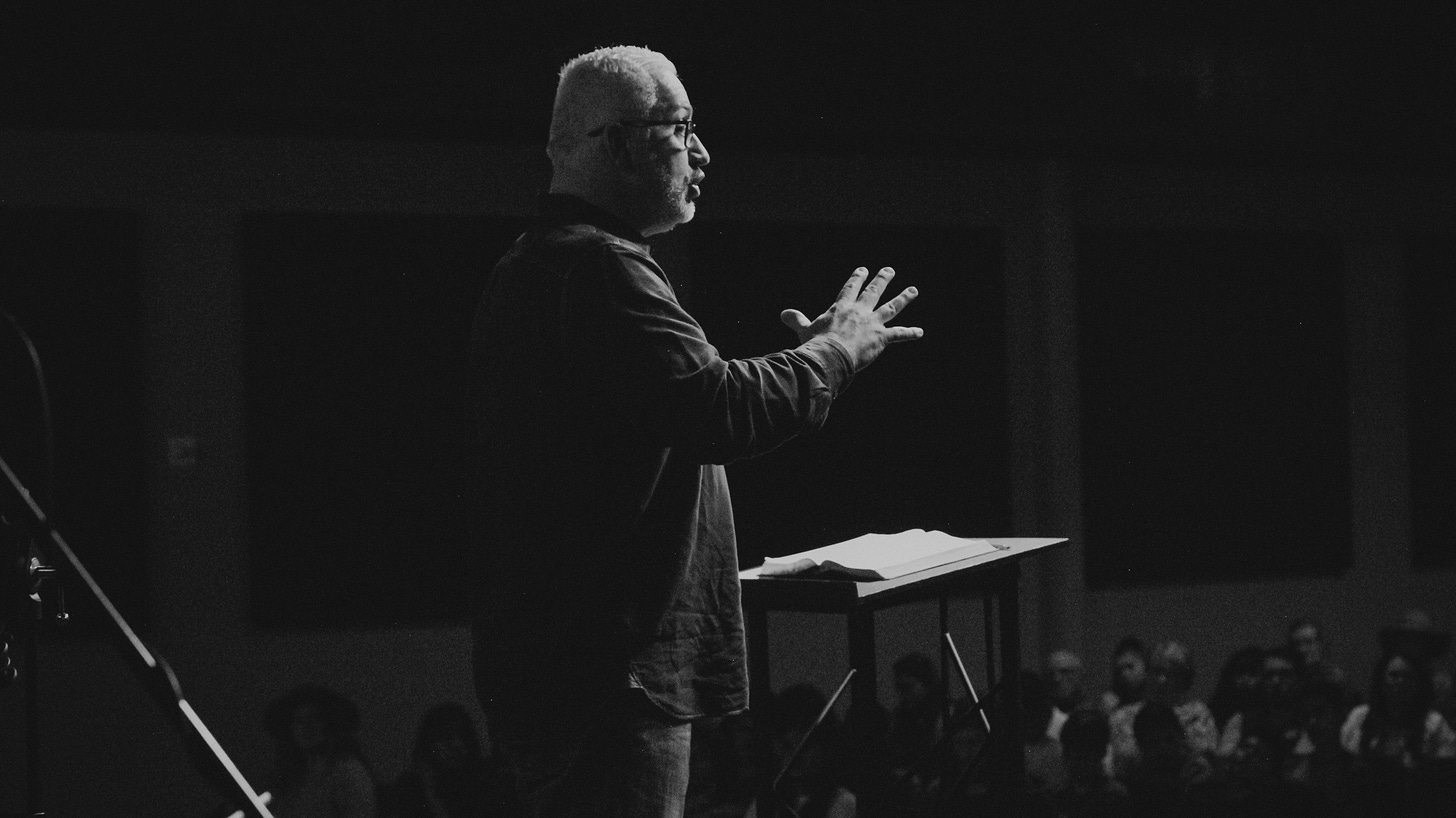Quotes, those motivational mini nuggets of wisdom. The internet is full of them, in fact, rampant with them. A google search for absolutely anything followed by “quotes” will display thousands of results.
“Some not only not translate well to reality but also dole out bad advice for the real world.”
The problem with most quotes is that they sound good only on paper and don’t translate well to reality.
Heck! Some of the famous ones such as “Be the hardest worker in the room”, “Money is the root of all evil”, “Never give up”, “Live every day like it’s your last.” etc. not only not translate well to reality but also dole out bad advice for the real world.
But like with anything, there are some extremely good quotes, powerful and possibly life-changing ones, diamonds in the huge expanse of dust.
I want to share a few that have actually changed my life and can hopefully change yours.
You Can Always Choose Your Attitude
“Everything can be taken from a man but one thing: the last of the human freedoms — to choose one’s attitude in any given set of circumstances, to choose one’s own way.”
When I read Man’s Search For Meaning by Viktor Frankl, I lost a night of sleep. It had been quite some time since I had read such a powerful, thought-provoking, and emotionally stirring book.
Austrian Psychologist Viktor Frankl met with one of the worst imaginable fates — being locked up in a concentration camp with inhuman living conditions, surrounded by death, and at the risk of dying himself.
I was suffering from Insomnia at the time and compared to what Frankl went through, it felt like nothing.
Will Power Won’t Cut It
He says that the camp broke even the ones with the strongest will powers. In fact, they were the first ones to break down he says. Viktor endured not through the power of his will but by fundamentally changing his perception.
“In fact, the ones with the strongest will powers were the first ones to break down he says.”
He wasn’t in control of the external situation but he was in control of how he perceived it. I don’t know about you but that was an extremely powerful realization to me.
It’s All About the Perception
This caused a fundamental mindset shift. I learned to mold my perception of things. I adopted a positive outlook and strove to look for the positives in everything in life.
“Viktor endured not through the power of his will but by fundamentally changing his perception.”
I persevered and overcame my Insomnia. The positive was that it was teaching me to appreciate sleep. When a mind-numbingly painful migraine hit, I could endure it. The positive was that it made me reduce my screen time.
I learned to make the most out of failure. The positive was that it gave me another chance to try but more smartly this time.
I realized that suffering and uncomfortable situations were inevitable in life and it’s through accepting, finding meaning and positives in them, and trying to change them that they become endurable.

Man Is an End in Himself
“Man — every man — is an end in himself, not a means to the ends of others; he must live for his own sake, neither sacrificing himself to others nor sacrificing others to himself; he must work for his rational self-interest, with the achievement of his own happiness as the highest moral purpose of his life.”
— Ayn Rand
It was The Fountainhead that introduced me to Ayn Rand and her philosophy, Objectivism — the philosophy that would go on to greatly change me as a person.
The Most Misunderstood Philosophy
What intrigued me about Objectivism was how controversial, powerful, and “anti-conventional” its ideas were.
In a world that preaches sacrifice, altruism, and living for the sake of others as virtues, Objectivism propounds self-interest, living for one’s own sake, and pursuing one’s own happiness as virtues.
Needless to say, Ayn Rand and her ideas have and continue to receive a lot of hate. But most that denounce her haven’t even made an effort to completely understand her ideas.
Deep Down, I Already Knew It
The aforementioned quote pretty much summarizes the essence of Objectivism and it was while reading her most famous book, Atlas Shrugged that I first came across it.
It made me take a step back, ponder for a while, and mutter with conviction, “Holy shit! This is so freaking true.”
“I just didn’t know that I knew it until I came across this quote.”
It was something, a rudimentary form of which I had been believing, no not believing but more accurately “knew” deep down for quite some time. I just didn’t know that I knew it until I came across this quote.
Taking Back Control
I was bullied in middle school and consequently had become a people pleaser, a validation seeker, and a shell of a human being overall.
“I did, and said things I didn’t want to, and portrayed myself as someone I actually wasn’t.”
I didn’t possess control over my own happiness, it was the others that did. If someone told me I looked good, I did. As I wanted to look “cool,” “tough” and “manly”, I did, and said things I didn’t want to, and portrayed myself as someone I actually wasn’t.
A string of events happened which triggered a massive change in me and the core aspect of it was regaining control over my own happiness and my own life.

What We Call “Selfless” Is Actually Selfish
My happiness matters the most to me. Am I being selfish? Yes, I am. I am selfish about my happiness, priorities, goals, and the like. I think you need to be too.
You most probably already are. Now, before you hurl abuses at me, kindly hear me out.
Let’s say you are a “selfless” person. While walking, you spot a blind kid in rags begging for money to buy food and saying that he hasn’t had a single morsel of food in days.
You buy him a full meal, maybe even new clothes, and give him some money to get him along for longer.
“That good deed was one driven by pure selfishness.”
That’s a good deed so kudos to you. But why did you do it? “Umm to make the boy happy.”
But what is it to you?, “Well, nothing I guess. It’s just that the sight of the boy smiling gives me satisfaction and makes me happy.”
See, you said it yourself. You did it for your own happiness. That good deed was one driven by pure selfishness.
Actual Selflessness is a Vice
I realized that selfishness was the true virtue. In fact, any deed done out of actual selflessness loses its virtue.
“I didn’t want to do it but felt compelled to. I also was afraid of being labeled “selfish’.”
Back when I used to be a people pleaser, whenever I was asked for help with something, I would say “Yes”. I didn’t want to do it but felt compelled to. I also was afraid of being labeled “selfish’.
The “help” would feel like a chore, a burden of sorts and I would go about it grudgingly. It didn’t make me happy and I also felt that the person I helped “owed” me something.
“Is it rude? Maybe, but it definitely is better than a false “pretense” at helping.”
Now, if I am asked for help, I do it only if I want to and when I do, it is genuine, true, and something that makes me happy. I am doing it for my own selfish end and hence the other person doesn’t owe me anything.
When I don’t want to, I slap a “No”. Is it rude? Maybe, but it definitely is better than a false “pretense” at helping.
The Bottom Line
We are all selfish and that’s a good thing. We care for our loved ones, engage in charity, do good deeds, etc. because they make us happy.
When we truly sacrifice something, we aren’t really sacrificing anything as we are again doing it for our own happiness. The billionaire that “sacrificed” all his wealth to the poor gained something more in the process — Happiness.
A good deed is virtuous only when it is done to achieve happiness as opposed to doing it out of compulsion or to portray yourself as a “good samaritan”, isn’t it?
“When we truly sacrifice something, we aren’t really sacrificing anything. We are giving away something to gain something larger — happiness.”
Being Unafraid of Being Wrong
“If anyone can refute me — show me I’m making a mistake or looking at things from the wrong perspective — I’ll gladly change. It’s the truth I’m after, and the truth never harmed anyone.”
This was a quote I came across when I first started exploring Stoicism and is to date one of my favorite quotes.
I Can’t Be Wrong
A little over a year ago, I was arrogant and self-righteous. I held my own knowledge and beliefs in high esteem and spoke in a condescending and mocking manner with others when it came to their beliefs.
“This quote taught me that there was nothing wrong with being wrong, only with staying wrong.”
If someone dared question my beliefs, I would take it as a personal affront and viciously battle it out to try to prove myself as right. On occasions that I was proved wrong, I would get angry and sometimes even walk out feeling butthurt and ashamed.
The More You Know, The More You Realize You Don’t Know
I have grown and learned a lot since then. I am now much more open-minded and humble. This was a natural consequence as the more I learned, the more I realized just how much I didn’t know.
“If I am wrong, I will gladly change. It’s staying wrong that I am afraid of, not being wrong.”
This quote taught me that there was nothing wrong with being wrong, only with staying wrong. I learned that my beliefs had nothing to do with me and that I had no reason to “guard” and act “protective” of them.
Beliefs Are Subjective
Unlike facts which are objective, beliefs are subjective and that’s exactly why different people have different perspectives and as a result different beliefs.
My beliefs have changed over time and my present ones are ones that I strongly believe in. Will my beliefs change? Maybe and I am open to that.
If I am wrong, I will gladly change. It’s staying wrong that I am afraid of, not being wrong.
“I learned that my beliefs had nothing to do with me and that I had no reason to ‘guard’ and act ‘protective’ of them.”

The Power of Reason
“Man cannot survive except through his mind. He comes on earth unarmed. His brain is his only weapon. Animals obtain food by force. Man had no claws, no fangs, no horns, no great strength of muscle. He must plant his food or hunt it. To plant, he needs a process of thought. To hunt, he needs weapons, and to make weapons — a process of thought. From this simplest necessity to the highest religious abstraction, from the wheel to the skyscraper, everything we are and we have comes from a single attribute of man — the function of his reasoning mind.”
— Ayn Rand
Since my birth, I have been an extremely inquisitive person. But in school, my hows and whys were met with disapproval and I was told to shut the f*** up.
Well, not literally but you get the idea.
Why is this right? “Because it’s in the textbook”. How do you prove this theorem? “It’s not there in the syllabus so don’t bother about it.” I found another way to prove this. “No, use only the way given in the textbook.”
“Believing blindly started to seem so wrong, like a betrayal of my own self.”
Right from school, we are taught to dull our reason and blindly believe. I also gradually became less and less inquisitive.
It was only after I read Atlas Shrugged by Ayn Rand and discovered Objectivism that I rekindled my inquisitiveness and started worshipping reason and logic.
I learned to accept something as right not because someone told me it was but rather because my mind deemed it was.
Believing blindly started to seem so wrong, like a betrayal of my own self. The mind is the greatest possession we have and society is bent upon dulling exactly that.
“I learned to accept something as right not because someone told me it was but rather because my mind deemed it was.”

Thinking Before Speaking
“I begin to speak only when I’m certain what I’ll say isn’t better left unsaid.” — Cato
A simple yet profound quote that I came across when I had a rather active and sharp mouth, one that would flap away before my mind could even process what to say.
Under the influence of emotions, feelings, or the situation, I would often blurt unpleasant things that I didn’t mean or intend to. Such things would end up becoming a cause for rifts in relations and much regret later on.
“It took months to mend what a moment broke, such is the power of the tongue.”
During a short argument with a close friend, my temper flared and I happened to utter really hurtful things that wrecked our friendship.
It took months to mend what a moment broke, such is the power of the tongue — the wounds inflicted by harsh words are much more painful and take much longer to heal than physical ones.
Since this quote, whenever I feel the impulse to speak, I restrain myself, pause for a moment, take a deep breath and ask myself, “Is this worth saying or would it be better off left unsaid?”
This simple strategy works wonders, I must say.
“The wounds inflicted by harsh words are much more painful and take much longer to heal than physical ones.”
There Is No “One” Way
“You have your way. I have my way. As for the right way, the correct way, and the only way, it does not exist.”
Well, I must admit, I am a big fan of Friedrich Nietzsche and this was one of his first quotes I came across.
This quote made me chuckle at how pithy it was. It gave me quite some food for thought and made me realize just how much we have “absolutized” things.
When in tenth grade, taking extra classes was the only way to ace the ICSE board exams. When in eleventh and twelfth grade, studying 8–10 hours a day was the “only” way to crack JEE. While preparing for placements, competitive coding was the “only” way to land a good company.
“There is no right way, only how “right” it is for an individual.”
I didn’t take extra classes, never studied for more than 3-4 hours a day, and didn’t do competitive coding yet topped my boards, cracked JEE, and landed an excellent job offer.
I paid rapt attention to the classes I attended and when I studied, I zoned in. I didn’t do competitive coding but developed my thinking and problem-solving skills.
We are all born different, the way we perceive the world is different, and similarly, what works for each of us is different. Your way needn’t be my way and my way needn’t be yours.
There is no right way, only how “right” it is for an individual.
“We are all born different, the way we perceive the world is different, and similarly, what works for each of us is different.”

You Are Free to Assign Any Meaning You Want to Your Life
“Ultimately, a man should not ask what the meaning of his life is, but rather must recognize that it is he who is asked. In a word, each man is questioned by life; and he can only answer to life by answering for his own life; to life, he can only respond by being responsible.”
Since my early years, “What is the meaning of life”, has been a constant question in my life and one to which I have never had a definitive answer too.
When I was bullied in school, life was meaningless. When I fell in love for the first time, she was the meaning of life. Later on, achieving my goals became the meaning of life. When I got heartbroken, life lost its meaning.
“The simultaneous simplicity and profundity of it blew my mind.”
It was while reading Man’s Search For Meaning that I came across this quote. The simultaneous simplicity and profundity of it blew my mind and made me think, “Wow! I never thought about it this way.”
I found the answer to my lifelong question — There wasn’t any inherent meaning to life and I was free to assign it any meaning I wanted!
“I have come to strongly believe that there is no point in doing things that I don’t find meaningful.”
Isn’t that a freeing realization? As long as it is meaningful, you can do absolutely anything in life — You can become a monk and meditate or become a business tycoon.
There are no restrictions and no “universal” standards for meaning.
I started to find meaning in everything I did and if I couldn’t find any, I wouldn’t do it. I have come to strongly believe that there is no point in doing things that I don’t find meaningful.
“As long as it is meaningful, you can do absolutely anything in life.”





Beautifully penned. Thanks